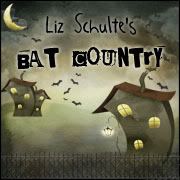Let’s talk about writer’s block today and how to overcome it.
There was a time I would have told you writer’s block didn’t exist, it was
simply a matter of being discipline. (yeah, I was arrogant)
But in my defense, I was working my day job for 40 hours a
week, writing every night until my eyes were blurry, and maintaining an
impressive writing schedule for even a full time author. Granted I gave up
things like fun and sleep, but I never had writer’s block. I had days I didn’t
feel like writing but I did it anyway. I was disciplined. I set deadlines and
goals and made those. Period.
However, I am now a little older and wiser and I have been
writing a lot longer now so I better understand what writer’s block really is. The
official definition who I google it is this: the condition of being unable to think of what
to write or how to proceed with writing.
This is a fine definition; however, I think there is so much
more to it. The fact is there are several different ways your writing can be
blocked.
- . Your story has lost direction.
- You don’t have any ideas that capture you.
- You keep getting distracted by everything but writing.
- You dread something that is coming up in the story.
- You have too many ideas.
- Fear.
I am sure there are infinite ways to be blocked, but these
are the ones I have at least had some experience with since I have been
writing. I have read lots of what is becoming clichéd advice on how to get over
writer’s block and it works on some of it, but not all of them.
Step one to
overcoming writer’s block is to figure what exactly is blocking you.
Once you know that, it is easier to figure out what you need
to do to fix it or overcome it. Below I am going to tell you what has worked
for me. These tactics may or may not work for you. As with everything in
writing, it is all about trial and error.
Your story has lost
direction: You have been writing, writing, writing then all of a sudden you
have no idea what to do next, how the book should end, and/or how you got to
where you are in the story. This one happens to me a lot. Normally it has one
or two different causes.
- You forced your characters in the wrong direction at some point in the story. To remedy this reread the book. Figure out where things went amiss. If it is an easy fix, then do it and keep writing. If it isn’t sometimes you have to take the very painful step of deleting the words you have worked so hard on. When I was writing Choices (book 2 of the Guardian Trilogy) I had to deleted 40,000 words because I had a clear goal where I wanted my characters to go so I forced them to go there. But the further I went the more I hated my book. I knew something was wrong with it and no matter how hard I tried I couldn’t make it write. However, after taking a deep breath and deleting it, the next run through went to much better.
- You simply have lost focus. A simple reread then some basic plotting to get you to the end. I personally like lists and flow charts. I will reread what I have written making a list of all open threads. Then when I get to the point I stopped writing I will look at what I need to address and I will make a flowchat of the order in which everything should happen and cross them off as I get to them. I don’t force myself to do the chart in order, but just having the chart gives me a sense of control and direction.
You don’t have any
ideas that capture you: For this there are a few tricks that help me
overcome it.
- Flash fiction. Instead of sitting down and trying to write a novel, find a picture that inspires you and makes you want to write something. Set a small goal (250 words, 500 words, whatever you are comfortable with) and write a story based on that picture. Who is the person in the picture, what happened at that location, what are the circumstance of that brought everything to that point? This is a great way to get new story ideas or to just clear your mind from whatever you have been writing. Like if I am writing a lot of paranormal novels then I like to make my flash fiction more mystery or horror based. Then when I go back to paranormal I feel more refreshed.
- Get out of the house. This one is getting more and more important to me since I became a full time writer. Less and less I have to interact with people and that means that I have lost a huge source of inspiration. So go shopping, go for a walk somewhere that there are people, do anything that forces yourself to be around other people. I do a lot of people watching. I like to make up stories about the people I see in my mind. Based on their movements, interactions, clothes, mannerisms, what are they like? What are their circumstances in life?
- Have a marathon of your favorite tv show or a new one. Sometimes a great place for inspiration is in movies or television or music. Watch how the story unfolds. How would you have done it differently? Write down the lines that inspire them. Give your mind permission to carry you away.
You keep getting
distracted by everything but writing: This one is tricky. The fact is it is
hard to work a full time job, raise a family, spend time with friends and family
and still manage to write. In fact, it isn’t just hard. At times it is
impossible. I don’t have an easy solution to this. Try making a schedule and
putting writing into your daily routine. Be realistic though. Don’t tell
yourself you can devote three hours a day to it when 30 minutes is more likely
because then you will be discouraged. You won’t spend that spare 30 minutes
writing when you don’t have a three hours block because that is what you
believe you should have. It is easier to schedule 30 minutes and write for an
hour than it is to schedule three and only be able to write for 1/6 of that
time. Also I devote Sundays not to writing, but to menu planning, grocery
shopping, schedule making, and organizing. That way come Monday morning I don’t
look around and find 100 things I need to do that can distract me from writing.
It isn’t 100% and sometimes these things work better than other, but regardless
I keep trying.
You dread something
that is coming up in the story: This is when you know a part of the book is
coming up that you really don’t want to write. You know you have to kill a
character you love, write a scene you aren’t comfortable with (a fight, sex, a
breakup, etc.). For this there is only one way that I know of to get over it.
Keep writing. Force yourself to sit down and put one word in front of the
other. Have some wine, take a shower, do whatever you need to relax and write.
Don’t separate yourself from the scene even if it hurts I believe in feeling
the scene make your writing stronger and allows the reader to feel it too.
You have too many
ideas: This is when you start one story then while you are writing it, you
get another idea so you start that, then another and another, so on and so
forth, until you have 20 stories started and none of them are finished. The key
to this is discipline. Write down the idea and move back to the original story.
Force your mind to focus. If you still can’t write it then look objectively at
the story. Is it a good idea? Will it make a good book? If you can’t remember
why you wanted to write to start with maybe you should shelve the book and
write something else. But just keep in mind that having 20 beginnings means
nothing if you can’t give them 20 endings.
Fear: Oh fear. It
creeps up just when you need it the very least. There are so many things to be afraid
of while you are writing. What if people hate the book, what if you don’t live
up to expectations, what if they make you stop writing (I don’t know who they
are, but they suck), what if the writing is terrible, what if, what if, what
if. It can eat at you and paralyze you. Again I don’t have a ready and easy
solution to this problem. Most simply I work through the fear. I push it to the
back of my mind and write anyway. I may not be perfect, but I will get better.
Hopefully with each story I write I learn something and improve. Fear will not
dominate me, it will not hold me back. Recognize it and defeat it every chance
you get.
Anyway, these are the things that work for me. I don’t know if any of it helps other
writers, but I hope it does. I know a lot of my solutions are tough it out, but
frankly writing isn’t for the weak.
-Liz


















